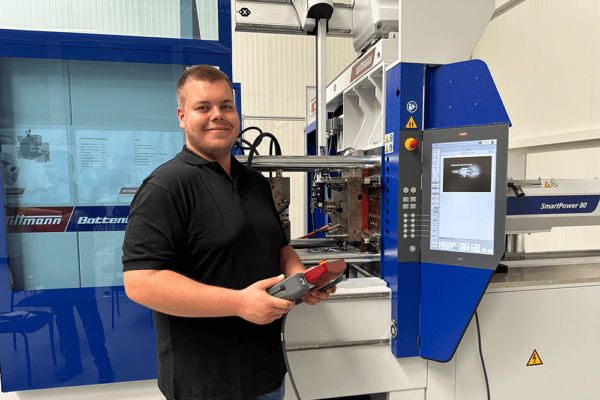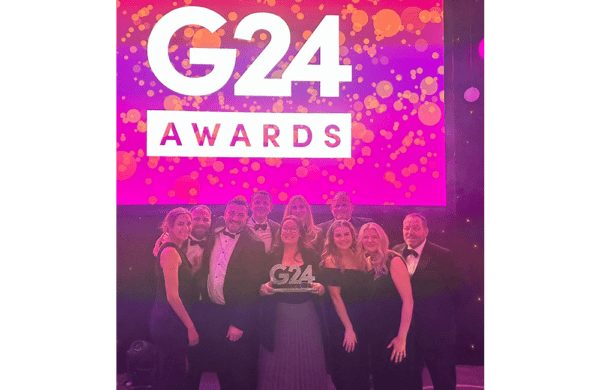
HotSeat | Andy Armstrong, Vice Managing Director at FANUC UK
|
Getting your Trinity Audio player ready...
|
What trends do you think will shape the future of UK plastics? How will FANUC respond?
AI is a big topic and the skills shortages in the industry are potentially driving demand for more AI functionality. The shift towards a lower-skilled workforce is accelerating the move to more closed-loop moulding processes, with minimal intervention – intelligent interfacing for peripheral equipment, data analysis and IoT will feed this trend.
Moulders are also looking at the total cost of ownership (TCO) and carefully choosing their next machine purchase – i.e. reliability, productivity, energy usage, footprint, uptime maintenance costs, spare parts, and the overall life cycle of the machine.
All electric adoption will continue to grow, as a percentage, versus hydraulic and hybrid solutions. This has been growing on a steady level for the last 5-8 years.
FANUC is responding to this by enhancing the machine’s CNC control system. The next generation of ROBOSHOT machines and CNC controllers will help expand AI capability.
We are already responding and producing new AI functionality for field testing for some of our Key global customers.
How has FANUC developed during your tenure?
FANUC is unique in comparison to traditional European manufacturers as the Injection moulding division is just one arm of the business. We are predominantly known for our industrial robots and our CNC controllers. Having just spent 4 years in a European role I was privileged to be able to interact heavily with our Japanese headquarters to help shape and advise on the future of our equipment and the levels of functionality demanded by our customers.
In general, I have seen FANUC grow significantly in the UK & Irish marketplaces from a perceived specialised all-electric machine to a highly accepted product that is now considered across many industry sectors. The one thing that blows me away after almost 40 years in the industry is the capability and reliability of the equipment. The reliability factor can only really be understood when you are lucky enough to visit our factories and see the investment in our dedicated reliability test centre.
From a personal perspective, I think FANUC is now seen as a go-to machine supplier rather than a specialist in all-electric machines in the marketplace. This has taken many years of hard work by my predecessors and the development of many high-profile customers plus the European market’s acceptance of all-electric technology.
What do you credit as the key to your success?
From a business perspective, having great people and unbelievable products that never cease to amaze us. You need good people to help deliver and support the business goals and I’ve always been lucky enough to work with some amazing individuals with many skill sets. This certainly makes life easier when you have a great team of people around you!
From a personal perspective having a varied level of experience is needed to meet the demands of the modern workplace. Over the last 39 years, I have changed job roles and positions at the right time to gain a high degree of experience. This has allowed me to build my technical and people skills, helped shape my career and given me many opportunities to learn and adapt to the daily work challenges.
What has been the greatest challenge in your career?
The greatest challenge has probably been going into a full-time sales role just before the financial crisis in 2008/2009. This was by far the leanest and most difficult period the plastics industry has seen for some time. Finding ways to seek out opportunities whilst building relationships for the future was difficult, to say the least.
Whilst this was a consequence of the economic situation, I would also like to see another key challenge. That of building a dedicated sales team across multiple product lines and developing FANUC’s reputation and product placement in many industries. Just over 10 years ago FANUC operated in the UK as 3 different businesses with 5 UK offices. The business amalgamation along with aligning the people in one direction has certainly been and remains a core challenge. Now we are proud to have a 10,000 sqm facility in Coventry and a FANUC Ireland office in Maynooth with 145 employees. The future is the next challenge.
What advice do you wish you’d had on entering the industry and does that differ from the advice you would give to an apprentice joining now?
As a 16-year-old apprentice in the early eighties, it was difficult to get advice. I had a natural choice, electronics or plastics and I was steered into the plastics industry instead.
My advice to apprentices joining the industry is to be diligent and studious to gain a level of knowledge and experience that they can pass on in the future. I didn’t understand the wide range of opportunities that lay ahead back in the late eighties. Therefore, broaden your knowledge as much as possible and be as flexible as possible to grow your future career path.
What hidden talents do you have?
I work for a Japanese company, but one talent I don’t have is Karaoke! Unfortunately, I was not gifted with the voice of an angel but maybe I do have a talent for killing the room if I have the microphone!
Read more news from FANUC here.

FANUC
+44 (0) 24 7605 3000
Website
Email





